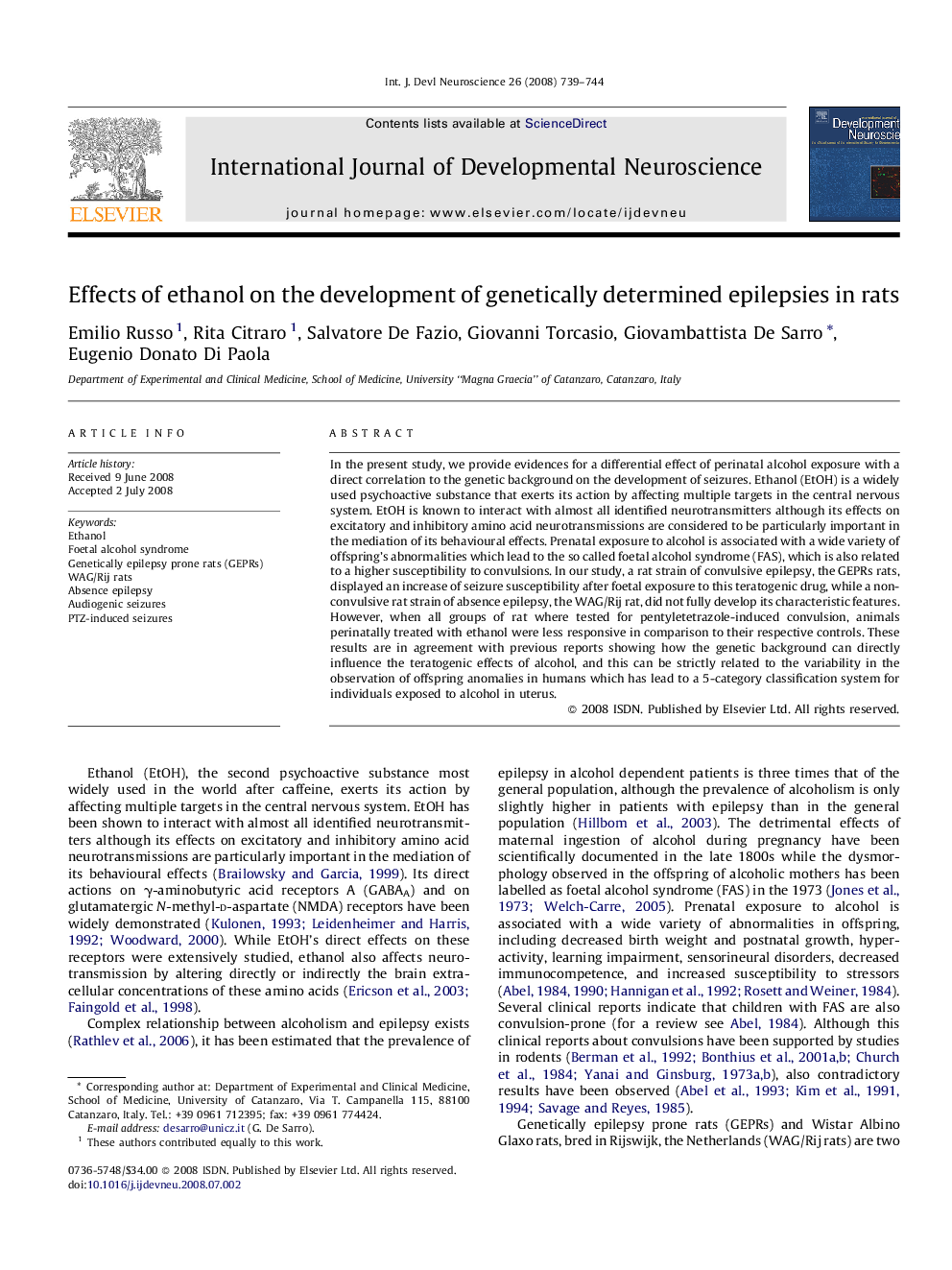| Article ID | Journal | Published Year | Pages | File Type |
|---|---|---|---|---|
| 2786990 | International Journal of Developmental Neuroscience | 2008 | 6 Pages |
In the present study, we provide evidences for a differential effect of perinatal alcohol exposure with a direct correlation to the genetic background on the development of seizures. Ethanol (EtOH) is a widely used psychoactive substance that exerts its action by affecting multiple targets in the central nervous system. EtOH is known to interact with almost all identified neurotransmitters although its effects on excitatory and inhibitory amino acid neurotransmissions are considered to be particularly important in the mediation of its behavioural effects. Prenatal exposure to alcohol is associated with a wide variety of offspring's abnormalities which lead to the so called foetal alcohol syndrome (FAS), which is also related to a higher susceptibility to convulsions. In our study, a rat strain of convulsive epilepsy, the GEPRs rats, displayed an increase of seizure susceptibility after foetal exposure to this teratogenic drug, while a non-convulsive rat strain of absence epilepsy, the WAG/Rij rat, did not fully develop its characteristic features. However, when all groups of rat where tested for pentyletetrazole-induced convulsion, animals perinatally treated with ethanol were less responsive in comparison to their respective controls. These results are in agreement with previous reports showing how the genetic background can directly influence the teratogenic effects of alcohol, and this can be strictly related to the variability in the observation of offspring anomalies in humans which has lead to a 5-category classification system for individuals exposed to alcohol in uterus.
